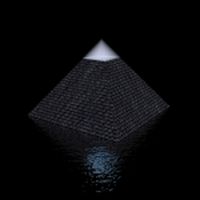 |
||
Home > TERATEC FORUM 2010 > > Workshop 6
Wednesday, June 16, 14h00 to 18h00
Parallel applications,
the challenges of manycore architectures
 |
Manycore processors are here! Energy saving tends to favor heterogeneous architectures that combine general-purpose cores with streaming co-processors such as GPUs. To exploit the tremendous computing power of these systems, software refactoring that extracts massive parallelism is unavoidable. There is no “silver bullet” to transparently solve this issue. |
|
|---|---|---|
Chairman : François BODIN, CAPS Entreprise |
|
|---|---|
14h00 |
Overview des challenges François BODIN, CAPS Entreprise |
Challenges that future architectures will impose include concurrency, memory structure and locality, variability, heterogeneity and hierarchy. Programming models should provide the mechanisms for programmers to express their algorithms and ideas in abstract ways while still letting the compiler and run time systems to optimize how they are run on the machines available today and to come in the future. The talk will look at relevant issues for HPC systems in the future and how they are addressed and supported by the programming models that are being proposed. |
|
HPC developers are now using a range of technologies - from hybrid GPU systems to homogeneous multi-core systems at unprecedented scale. This is leading to very complex software development challenges. This talk presents Allinea's DDT debugging tool as a solution - revealing how it is already bringing simplicity and performance to debugging GPU and Petascale systems. |
|
Bridging Multi-Cores and Clouds with ProActive Parallel Suite The talk presents how ProActive Parallel Suite, http://proactive.inria.fr, an OW2 Open Source project, allows to facilitate parallel programming and application acceleration. Further, it is explained how one can manage heterogeneous infrastructures with Multi-Cores CPU and GPU, Clusters, Servers, Desktops, Grids, all the way up to private and public Clouds. |
|
Parallelism issues for developers With multicore PCs, we face a breakpoint which forces developers to think differently, to think parallel. Nevertheless, this remains a discipline hard to apprehend and still intended for a restricted amount of HPC experts. Issue we now have to face is to give all developers access to parallelism without the need of deep knowledge. |
David Lecomber
Dr David Lecomber holds a PhD in Parallel Computing from Oxford University, and is the CTO and a founder of Allinea Software. David leads the development team at Allinea where recent progress in DDT has broken long-standing debugging barriers by providing the first petascale debugger and the first graphical GPU debugger for hybrid codes.
Denis Caromel
Denis Caromel is full professor at University of Nice-Sophia Antipolis and CNRS-INRIA. Denis is also co-founder and scientific adviser to ActiveEon, a startup dedicated to providing support for parallel programming. His interests include parallel, concurrent, and distributed computing, in the framework of GRID and CLOUD. Denis Caromel gave many invited talks on Parallel and Distributed Computing around the world, over (Jet Propulsion Laboratory,Berkeley, Stanford, ISI, USC, Electrotechnical Laboratory Tsukuba, Sydney, Oracle-BEA EMEA, Digital System Research Center in Palo Alto,NASA Langley, IBM Tom Watson and IBM Zurich, Boston HARVARD MEDICAL SCHOOL, MIT, Tsinghua in Beijing). He acted as keynote speaker at several major conferences (including Beijing MDM, DAPSYS 2008, CGW'08, Shanghai CCGrid 2009, IEEE ICCP'09, ICPADS 2009 in Hong Kong). Recently, he gave two important invited talks at Sun Microsystems HPC Consortium (Austin, Tx), and at Devoxx (gathering about 3500 persons).
http://www-sop.inria.fr/oasis/caromel/
Eric Vernie
Eric vernie fait partie de la Division Plate-forme et Ecosystème de Microsoft France, ou sa principale activité est de promouvoir les outils et plate-forme de développement de Microsoft auprès de tous les développeurs Français, au travers de conférences et d’articles dans la presse spécialisée. Depuis l’avènement des multi-cœurs, son challenge est d’informer les développeurs des changements auxquels ils auront à faire face. Ses domaines de compétences, tournent autour du développement Windows et C++ ainsi que sur la plate-forme .NET.